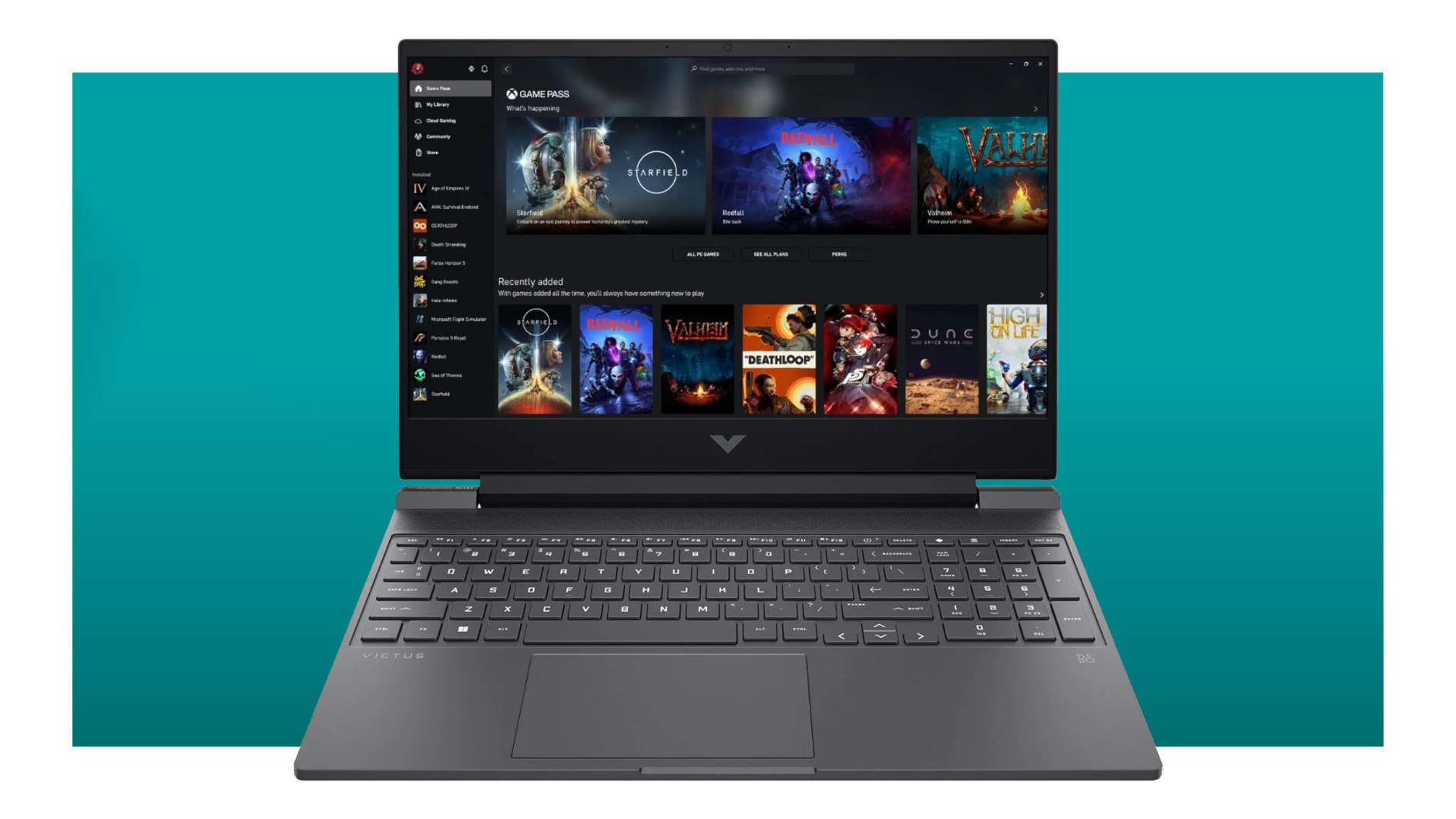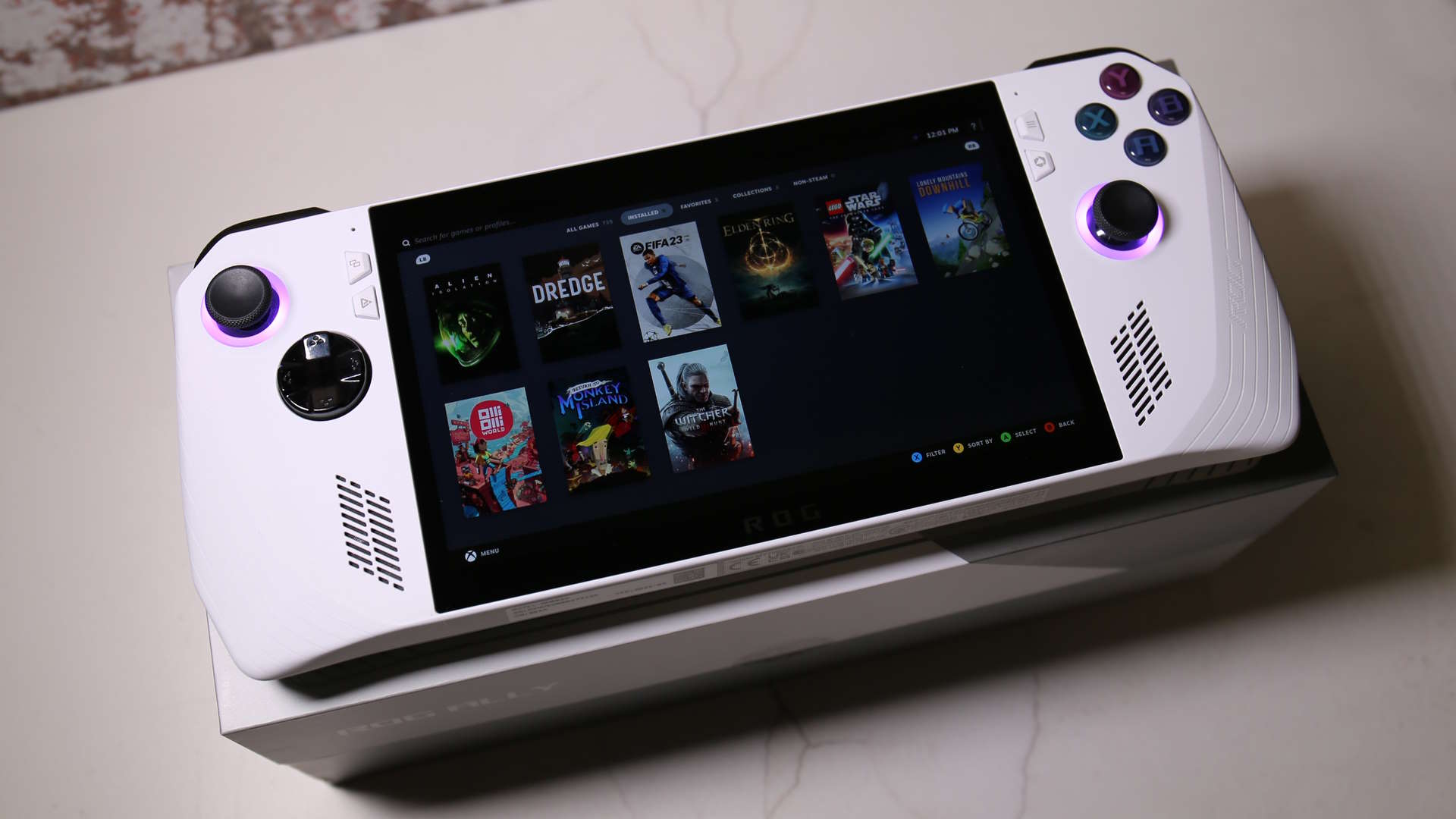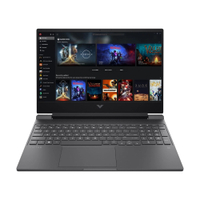What's the better gift for a student: a handheld PC or this sweet gaming laptop for just $699?
The answer is easy when you consider what you're getting for your money.

HP Victus | RTX 4060 | Core i5-12500H | 16GB DDR4 | 1TB SSD | 512GB SSD | 15.6-inch | 144Hz | $1099 $699 at Walmart (save $400)
At full price, there are better laptops on the market, but with a $400 discount, it's pretty hard to beat this HP Victus. You're getting a 12 core, 16 thread CPU, an RTX 4060 GPU, and 16GB of RAM. The storage is a bit small at only 512GB but at least there's is a lush IPS, 144Hz 1080p panel. Heck, you even get one month of Xbox Game Pass Ultimate too. Perfect for gaming on the go.
There's a lot to like about the HP Victus laptop, currently at a really low price for its power. Yes, the CPU is two generations old, but the Core i5 12500H still offers four P-cores, eight E-cores, and 16 threads in total.
It would be nicer to have a CPU that has fewer E-cores and more P-cores, but with a boost clock of 4.5GHz and a power limit of 95W, it'll cope with most games just fine. You'll even be able to throw in a bit of content creation.
To handle the graphics duties, there's a GeForce RTX 4060, which is a decent 1080p budget-level GPU. There's no indication as to what its power limit is, but hopefully it's not one of the low-end versions. In other HP laptops, such as its RTX 4050 models, they're typically towards the higher end of the power range.
But regardless of what its actual performance is like, it's a perfect match for the 1080p IPS panel. The refresh rate is suitably high for gaming at 144Hz, and if the GPU struggles to hit that level in games, then you might be able to enable DLSS upscaling or DLSS Frame Generation to boost things along.
You're getting a decent amount of RAM for the money and 16GB is more than enough for the vast majority of games. I can't tell what speed it is, but it's unlikely to be very slow stuff, simply because DDR4-3200 is super cheap these days.
Apart from some of the unknown specifications, the only major downside to this deal is the amount of storage you're getting: 512GB is pretty mean by today's standards and it will fill up very quickly. HP tends to only offer one SSD slot inside its budget laptops but at least it's not expensive to replace it with a large, fast 1TB drive.

If you're still not convinced, the HP Victus has almost identical hardware to a Gigabyte G5 laptop that we reviewed back in April; its gaming performance was spot on. At $699, though, you might be tempted to spend the money on an Asus ROG Ally handheld PC (currently $599.99 at Best Buy). The CPU inside is better than the Core i5 12500H, though not massively so, and its GPU isn't as good at 1080p gaming on the RTX 4060.
The ROG Ally is certainly a lot more portable but the battery life is pretty short. Its integrated dual-stick controls make it a comfortable machine for controller-focused games, but if the gamer in your life prefers a mouse and keyboard, a laptop is a far simpler setup. With a separate stand and a USB splitter, it's possible to plug in peripherals to a PC handheld, but then you're forcing a purpose-built machine to function outside its main purpose.
If you're looking for the perfect Christmas gift for a student who wants something to work and play on, this laptop is by far the best choice.
Keep up to date with the most important stories and the best deals, as picked by the PC Gamer team.

Nick, gaming, and computers all first met in 1981, with the love affair starting on a Sinclair ZX81 in kit form and a book on ZX Basic. He ended up becoming a physics and IT teacher, but by the late 1990s decided it was time to cut his teeth writing for a long defunct UK tech site. He went on to do the same at Madonion, helping to write the help files for 3DMark and PCMark. After a short stint working at Beyond3D.com, Nick joined Futuremark (MadOnion rebranded) full-time, as editor-in-chief for its gaming and hardware section, YouGamers. After the site shutdown, he became an engineering and computing lecturer for many years, but missed the writing bug. Cue four years at TechSpot.com and over 100 long articles on anything and everything. He freely admits to being far too obsessed with GPUs and open world grindy RPGs, but who isn't these days?


